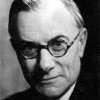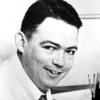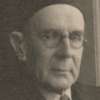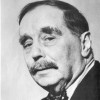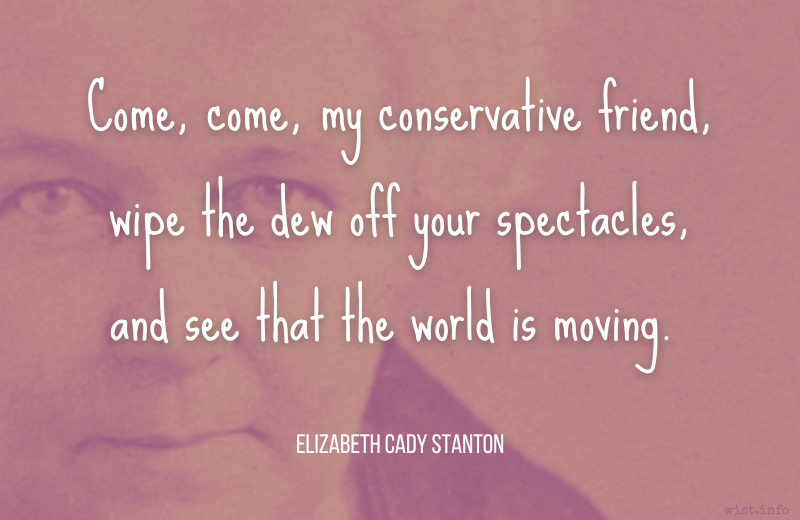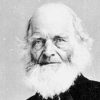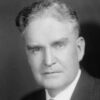LAZARUS: You’re so sentimental, Doctor. Maybe you are older than you look.
THE DOCTOR: I’m old enough to know that a longer life isn’t always a better one. In the end, you just get tired; tired of the struggle, tired of losing everyone that matters to you, tired of watching everything you love turn to dust. If you live long enough, Lazarus, the only certainty left is that you’ll end up alone.
LAZARUS: That’s a price worth paying.
THE DOCTOR: Is it?
Stephen Greenhorn (b. 1964) Scottish playwright and screenwriter
Doctor Who, (2005) 03×06 “The Lazarus Experiment” (2007-05-05)
(Source)
Quotations about:
change
Note not all quotations have been tagged, so Search may find additional quotes on this topic.
The first symptom is that hair grows on your ears. It’s very disconcerting.
Edward G. Robinson (1893-1973) American stage and film actor [b. Emanuel Goldenberg]
All My Yesterdays: An Autobiography, “Epilogue” (1973) [with Leonard Spigelgass]
(Source)
On growing old.
The “good old times” — all times when old are good —
Are gone.
This basic clash of ideas and wills is but one of the forces reshaping our globe — swept as it is by the tides of hope and fear, by crises in the headlines today that become mere footnotes tomorrow. Both the successes and the setbacks of the past year remain on our agenda of unfinished business. For every apparent blessing contains the seeds of danger — every area of trouble gives out a ray of hope — and the one unchangeable certainty is that nothing is certain or unchangeable.
But we are so blind to our own shortcomings, so wide awake to those of others. Everything that happens to us is always the other person’s fault. Angelina would have gone on loving Edwin forever and ever and ever if only Edwin had not grown so strange and different. Edwin would have adored Angelina through eternity if Angelina had only remained the same as when he first adored her.
It is a cheerless hour for you both when the lamp of love has gone out and the fire of affection is not yet lit, and you have to grope about in the cold, raw dawn of life to kindle it. God grant it catches light before the day is too far spent. Many sit shivering by the dead coals till night come.Jerome K. Jerome (1859-1927) English writer, humorist [Jerome Klapka Jerome]
Idle Thoughts of an Idle Fellow, “On Being In Love” (1886)
(Source)
But we are so blind to our own shortcomings, so wide awake to those of others. Everything that happens to us is always the other person’s fault. Angelina would have gone on loving Edwin forever and ever and ever if only Edwin had not grown so strange and different. Edwin would have adored Angelina through eternity if Angelina had only remained the same as when he first adored her.
It is a cheerless hour for you both when the lamp of love has gone out and the fire of affection is not yet lit, and you have to grope about in the cold, raw dawn of life to kindle it. God grant it catches light before the day is too far spent. Many sit shivering by the dead coals till night come.Jerome K. Jerome (1859-1927) English writer, humorist [Jerome Klapka Jerome]
Idle Thoughts of an Idle Fellow, “On Being in Love” (1886)
(Source)
ANNA: Well, people change, and forget to tell each other. Too bad — causes so many mistakes.
Lillian Hellman (1905-1984) American playwright, screenwriter
Toys in the Attic, Act 3 (1959)
(Source)
AHASUERAS: I am content.
ESTHER: Content is not the pathway to great deeds.Ella Wheeler Wilcox (1850-1919) American author and poet.
“The Drama of Mizpah: Honeymoon Scene,” Poems of Progress (1909)
(Source)
Every human being, like every animal, wants to live in what is felt to be a safe environment — an environment where you won’t be exposed to unexpected peril. Now, when a man tells you that something you’ve always believed was in fact not true, it gives you a frightful shock and you think, “Oh! I don’t know where I am. When I think I’m planting my foot upon the ground, perhaps I’m not.” And you get into a terror.
Bertrand Russell (1872-1970) English mathematician and philosopher
Interview by Woodrow Wyatt, BBC TV (1959)
On resistance to scientific discovery.
Collected in Bertrand Russell's BBC Interviews (1959) [UK] and Bertrand Russell Speaks His Mind (1960) [US]. Reprinted (abridged) in The Humanist (1982-11/12), and in Russell Society News, #37 (1983-02).
Change is certain. Progress is not.
E. H. Carr (1892-1982) British historian, journalist, international relations theorist [Edward Hallett "Ted" Carr]
(Attributed)
This is widely cited to his collection, From Napoleon to Stalin and Other Essays (1980), but I cannot find it there.
And yet if there’s one thing consistent about language it is that it is constantly changing. The only languages that do not change are those whose speakers are dead.
Rosalie Maggio (1944-2021) American writer
Unspinning the Spin: The Women’s Media Center Guide to Fair and Accurate Language, “Writing Guidelines / Introduction” (2014)
(Source)
This is sometimes attributed to Maggio's earlier The Bias-Free Word Finder (1992), but only the first sentence is present in that version.
The source link is to the web page that the WMC set up for the book.
No normal man who has smelled and associated with death ever wants to see any more of it. In fact, the only men who are even going to want to bloody noses in a fist fight after this war will be those who want people to think they were tough combat men, when they weren’t. The surest way to become a pacifist is to join the infantry.
Dissatisfaction with the world in which we live and determination to realize one that shall be better, are the prevailing characteristics of the modern spirit.
G. Lowes Dickinson (1862-1932) British political scientist and philosopher [Goldsworthy "Goldie" Lowes Dickinson]
The Greek View of Life, ch. 5 “Conclusion” (1911)
(Source)
I think of Art, at its most significant, as a DEW line, a Distant Early Warning system, that can always be relied on to tell the old culture what is beginning to happen to it.
Marshall McLuhan (1911-1980) Canadian philosopher, communication theorist, educator
Quoted in Richard Schickel, “Marshall McLuhan: Canada’s Intellectual Comet,” Harper’s Magazine (1965-11)
(Source)
This life is a hospital in which every patient is haunted by the desire to change beds. This one wants to suffer in front of the stove, and that one believes he will recover next to the window.
[Cette vie est un hôpital où chaque malade est possédé du désir de changer de lit. Celui-ci voudrait souffrir en face du poêle, et celui-là croit qu’il guérirait à côté de la fenêtre.]Charles Baudelaire (1821-1867) French poet, essayist, art critic
Le Spleen de Paris (Petits Poèmes en Prose), No. 48 “Any Where Out of the world” (1869) [tr. Kaplan (1989)]
(Source)
The title of the original is in English, a line from Thomas Hood, "The Bridge of Sighs." It is often subtitled with the French translation, "N’importe où hors du monde," which are the final lines.
(Source (French)). Alternate translations:
Life is a hospital, in which every patient is possessed by the desire of changing his bed. One would prefer to suffer near the fire, and another is certain that he would get well if he were by the window.
[tr. Symons (<1919)]
This life is a hospital where every patient is possessed with the desire to change beds; one man would like to suffer in front of the stove, and another believes that he would recover his health beside the window.
[tr. Hamburger (1946)]
Life is a hospital where every patient is obsessed by the desire of changing beds. One would like to suffer opposite the stove, another is sure he would get well beside the window.
[tr. Varèse (1970)]
This life is a hospital where each patient is possessed with the desire of changing his bed. One would like to suffer in front of the stove, and another believes he would get well beside the windows.
[tr. Fowlie (1992)]
This life is a hospital, where each patient is possessed by the desire to change beds. That one prefers to suffer nearer the stove and this one believes he would get well next to the window.
[tr. Waldrop (2009)]
GLOUCESTER: These late eclipses in the sun and moon portend no good to us. Though the wisdom of nature can reason it thus and thus, yet nature finds itself scourged by the sequent effects. Love cools, friendship falls off, brothers divide; in cities, mutinies; in countries, discord; in palaces, treason; and the bond cracked ’twixt son and father. This villain of mine comes under the prediction: there’s son against father. The King falls from bias of nature: there’s father against child. We have seen the best of our time. Machinations, hollowness, treachery, and all ruinous disorders follow us disquietly to our graves.
William Shakespeare (1564-1616) English dramatist and poet
King Lear, Act 1, sc. 2, l. 109ff (1.2.109-121) (1606)
(Source)
Man comes to each age of his life a novice.
[L’homme arrive novice à chaque âge de la vie.]
Nicolas Chamfort (1741-1794) French writer, epigrammist (b. Nicolas-Sébastien Roch)
Products of Perfected Civilization [Produits de la Civilisation Perfectionnée], Part 2 Characters and Anecdotes [Caractères et Anecdotes], ch. 12 (1795) [tr. Merwin (1969)]
(Source)
(Source (French)). Alternate translations:
Man arrives a novice at every age of life.
[Source (1878)]
Man reaches each stage in his life as a novice.
[tr. Hutchinson (1902), "The Cynic's Breviary"]
A man begins every stage of his life as a novice.
[tr. Parmée, ¶412 (2003)]
Two conditions are essential to the realization of justice according to law. The law must have an authority supreme over the will of the individual, and such an authority can arise only from a background of social acquiescence, which gives it the voice of indefinitely greater numbers than those of its expositors. Thus, the law surpasses the deliverances of even the most exalted of its prophets; the momentum of its composite will alone makes it effective to coerce the individual and reconciles him to his subserviency. The pious traditionalism of the law has its roots in a sound conviction of this necessity; it must be content to lag behind the best inspiration of its time until it feels behind it the weight of such general acceptance as will give sanction to its pretension to unquestioned dictation.
Learned Hand (1872-1961) American jurist
“The Speech of Justice,” Harvard Law Review (1916-04)
(Source)
Collected in The Spirit of Liberty (1953).
Books aren’t just commodities; the profit motive is often in conflict with the aims of art. We live in capitalism, its power seems inescapable — but then, so did the divine right of kings. Any human power can be resisted and changed by human beings. Resistance and change often begin in art. Very often in our art, the art of words.
Ursula K. Le Guin (1929-2018) American writer
Speech, accepting the National Book Foundation Medal (19 Nov 2014)
(Source)
On receiving the National Book Foundation Medal for Distinguished Contribution to American Letters at the 65th National Book Awards. Video of the speech.
It feels cooler to say, “I’m not woke,” than the truth, which is, “I’m terrified of what I don’t understand and I only know how to process that as anger because I can’t look inward.”
Sarah Silverman (b. 1970) American stand-up comedian, actress, writer
The Daily Show (15 Feb 2023)
(Source)
Hope is the feeling we have that the feeling we have is not permanent.
Mignon McLaughlin (1913-1983) American journalist and author
The Neurotic’s Notebook, ch. 5 (1963)
(Source)
This phrase is often cited to Jean Kerr. That's because she paraphrases it in her play, Finishing Touches, Act 3 (1974):
FELICIA: Do you know the book The Neurotic's Notebook? There's a line in it I say to myself when I get discouraged. It goes: "Hope is the feeling you have that the feeling you have isn't permanent."
You can’t save others from themselves because those who make a perpetual muddle of their lives don’t appreciate your interfering with the drama they’ve created. They want your poor-sweet-baby sympathy, but they don’t want to change. This is a truth I never seem to learn.
“Dystopia” isn’t when things go wrong. Assuming nothing will go wrong doesn’t make you an optimist, it makes you an asshole. A dangerous asshole. Assuming nothing will go wrong is why they didn’t put enough lifeboats on the Titanic. Dystopia isn’t where things go wrong. Dystopia is when things go wrong, and nothing can be done about it.
People often overestimate what will happen in the next two years and underestimate what will happen in ten.
Bill Gates (b. 1955) American software magnate [William Henry Gates III]
The Road Ahead, “Afterword” (1996 ed.)
(Source)
First use of this specific formulation, but similar phrases can be traced back to the 1960s. More discussion of variations on this theme: People Tend To Overestimate What Can Be Done In One Year And To Underestimate What Can Be Done In Five Or Ten Years – Quote Investigator®.
We can’t be creative if we refuse to be confused. Change always starts with confusion; cherished interpretations must dissolve to make way for what’s new.
Margaret J. "Meg" Wheatley (b. 1944) American writer, teacher, speaker, management consultant
Turning to One Another, “Willing to Be Disturbed” (2002)
(Source)
Looking back, you can usually find the moment of the birth of new era, whereas, when it happened, it was one day hooked on the tail of another.
Adapt or perish, now as ever, is Nature’s inexorable imperative.
H.G. Wells (1866-1946) British writer [Herbert George Wells]
Mind at the End of Its Tether, ch. 4 “Recent Realizations of the Nature of Life” (1945)
(Source)
The only way to make sense out of change is to plunge into it, move with it, and join the dance.
Alan Watts (1915-1973) Anglo-American philosopher, writer
The Wisdom of Insecurity: A Message for an Age of Anxiety, ch. 3 (1951)
(Source)
When people are ready to, they change. They never do it before then, and sometimes they die before they get around to it. You can’t make them change if they don’t want to, just like when they do want to, you can’t stop them.
Andy Warhol (1928-1987) American artist, author
POPism: The Warhol Sixties, “1965” (1980) [with Pat Hackett]
(Source)
Regarding drug and alcohol use.
It is never too late — in fiction or in life — to revise.
Men do change, and change comes like a little wind that ruffles the curtains at dawn, and it comes like the stealthy perfume of wildflowers hidden in the grass. Change may be announced by a small ache, so that you think you’re catching cold. Or you may feel a faint disgust for something you loved yesterday. It may even take the form of a hunger that peanuts won’t satisfy.
Sometimes change came all at once, with a sound like a fire taking hold of dry wood and paper, with a roar that rose around you so you couldn’t hear yourself think. And then, when the roar died down, even when the fires were damped, everything was different.
Ignorance is always afraid of change. It fears the unknown and sticks to its rut, however miserable it may be there. In its blindness it stumbles on anyhow.
Jawaharlal Nehru (1889-1964) Indian nationalist leader, politician, statesman, author
Glimpses of World History, Letter 82, 4 Aug 1932 (1934)
(Source)
As turning the logs will make a dull fire burn, so change of studies a dull brain.
In a time of drastic change it is the learners who inherit the future. The learned usually find themselves equipped to live in a world that no longer exists.
Eric Hoffer (1902-1983) American writer, philosopher, longshoreman
Reflections on the Human Condition, ch. 1, § 32 (1973)
(Source)
And now I understand
something so frightening, and wonderful —
how the mind clings to the road it knows, rushing
through crossroads, sticking
like lint to the familiar.
We used to think that revolution is the cause of change. Actually, it is the other way around: revolution is a by-product of change. Change comes first, and it is the difficulties and irritations inherent in change that set the stage for revolution. To say that revolution is the cause of change is like saying juvenile delinquency is the cause of the change from boyhood to manhood.
Whenever you take a step forward you are bound to disturb something. You disturb the air as you go forward, you disturb the dust, the ground. You trample upon things. When a whole society moves forward this trampling is on a much bigger scale and each thing that you disturb, each vested interest which you want to remove, stands as an obstacle.
Indira Gandhi (1917-1984) Indian politician
“Poverty: India’s Vital Problem,” speech, Madras University (Jan 1967)
(Source)
Convictions no doubt have to be modified or expanded to meet changing conditions […] but to be a reliable political leader sooner or later your anchors must hold fast where other men’s drag.
Margot Asquith (1864-1945) British socialite, author, wit [Emma Margaret Asquith, Countess Oxford and Asquith; Margot Oxford; née Tennant]
More or Less about Myself, ch. 3 (1934)
(Source)
Come, come, my conservative friend, wipe the dew off your spectacles, and see that the world is moving.
Elizabeth Cady Stanton (1815-1902) American social activist, abolitionist, woman's suffragist
The Woman’s Bible, Part 1, Introduction (1895)
(Source)
A belated discovery, one that causes considerable anguish, is that no one can persuade another to change. Each of us guards a gate of change that can only be unlocked from the inside. We cannot open the gate of another, either by argument or emotional appeal.
Marilyn Ferguson (1938-2008) American author, editor, public speaker
The Aquarian Conspiracy, ch. 4 (1980)
(Source)
It is only in romances that people undergo a sudden metamorphosis. In real life, even after the most terrible experiences, the main character remains exactly the same.
MERL: Funny thing about change, it’s like pulling off a bandage. Hurts like hell when you do it, but you always feel better after.
Hart Bochner (b. 1956) Canadian actor, film director, screenwriter, producer
Just Add Water (2008)
(Source)
The role of Merl Striker was played by Danny Devito.
Conservatives are always with us, they have been opposing change ever since the days of the cave-man. But, fortunately for mankind, they agitate in vain.
Weep not that the world changes — did it keep
A stable, changeless state, ’twere cause indeed to weep.William Cullen Bryant (1794-1878) American poet and editor
“Sonnet — Mutation,” ll. 13-14 (1824)
(Source)
There is an enormous variety of things we’ve discovered that we never dreamed of, like, for example, black holes, pulsars, quasars, all these unbelievably active goings-on in the universe. Which in Aristotle’s time the universe, the sky, was supposed to be quiescent, it was supposed to be perfect and peaceful, and nothing ever happened in the celestial sphere; and that remained true, actually, throughout all of the revolutions. It remained the general view of astronomers right through Copernicus, and Galileo, and Newton, and everybody else, still, the universe looked very quiescent — until just the last thirty years, and now we know it’s not like that at all. In fact the universe is full of violent events, and fantastic, strong gravitational fields, and collapsed objects, and huge outpourings of energy. All these things were discovered in the last thirty years.
Freeman Dyson (1923-2020) English-American theoretical physicist, mathematician, futurist
“Freeman Dyson: In Praise of Diversity,” Interview on A Glorious Accident, VPRO (Netherlands) (30 Aug 2016)
(Source)
Man feels the need to rake leaves, clean up the summer’s remnants, proclaim his tenancy by making things neat and tidy. Nature doesn’t bother. The tree thrives on its own trash and the see sprouts in the parent plant’s midden heap. Each new season grows from the leftovers from the past. That is the essence of change, and change is the basic law. Nature hasn’t time to be neat and tidy.
There is a strong conservative instinct in the average man or woman, born of the hereditary fear of life, that prompts them to cling to old standards, or, if too intelligent to look inhospitably upon progress, to move very slowly. Both types are the brakes and wheelhorses necessary to a stable civilization, but history, even current history in the newspapers, would be dull reading if there were no adventurous spirits willing to do battle for new ideas.
Gertrude Atherton (1857-1948) American author, essayist
The Living Present, Book 2, ch. 1, sec. 1 (1917)
(Source)
When you are through changing, you are through.
Bruce Barton (1886-1967) American author, advertising executive, politician
Article Title, The American Magazine (1929?)
(Source)
Barton was a regular contributor to The American Magazine. Both the cited source (from 1929) and this suggest this was an article he contributed no later than 1929.
The saying has been misattributed to a number of more recent consultants, motivational speakers, etc.
All changes are more or less tinged with melancholy, for what we are leaving behind is part of ourselves.
Amelia E. Barr (1831-1919) British novelist and teacher.
All the Days of My Life, ch. 6 (1913)
(Source)
See Anatole France.
Most anarchists believe the coming change can only come through a revolution, because the possessing class will not allow a peaceful change to take place; still we are willing to work for peace at any price, except at the price of liberty.
Lucy Parsons (1851-1942) American labor organizer, anarchist, orator [a.k.a. Lucy Gonzalez]
“The Principles of Anarchism,” lecture (1905)
(Source)
PROTEUS: Oh, how this spring of love resembleth
The uncertain glory of an April day;
Which now shows all the beauty of the sun,
And by and by a cloud takes all away!
William Shakespeare (1564-1616) English dramatist and poet
Two Gentlemen of Verona, Act 1, sc. 3, l. 85ff (1.3.85-88) (c. 1590)
(Source)
Living things tend to change unrecognizably as they grow. Who would deduce the dragonfly from the larva, the iris from the bud, the lawyer from the infant? Flora or fauna, we are all shape-shifters and magic reinventors. Life is really a plural noun, a caravan of selves.
Diane Ackerman (b. 1948) American poet, author, naturalist
Cultivating Delight; A Natural History of My Garden, ch. 6 (2001)
(Source)
What threatens our security is not change but the inability to change; what threatens progress is not revolution but stagnation; what threatens our survival is not novel or dangerous ideas but the absence of ideas.
Henry Steele Commager (1902-1998) American historian, writer, activist
“The University and the Community of Learning,” speech, Kent State University, Ohio (10 Apr 1971)
(Source)









